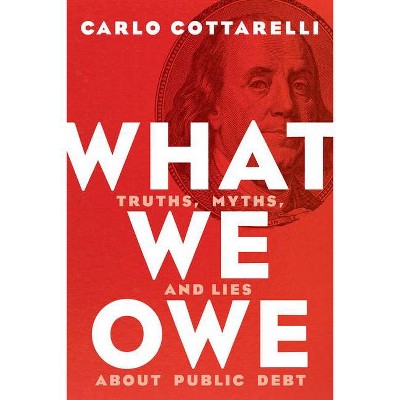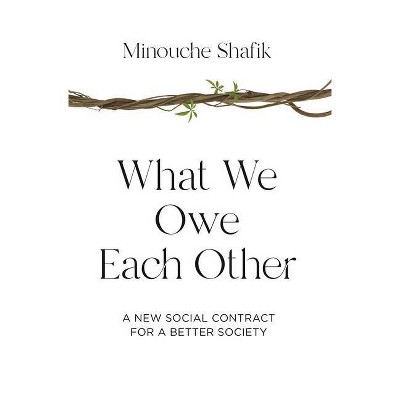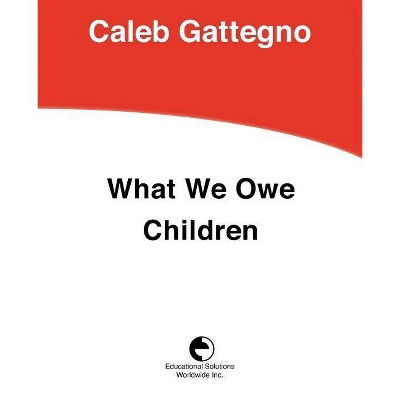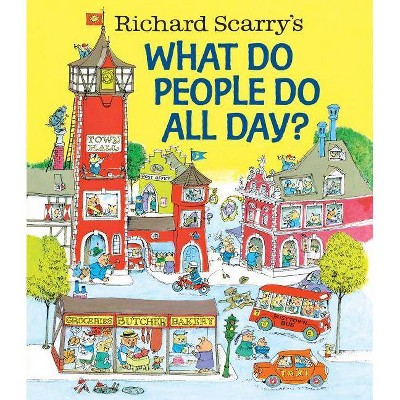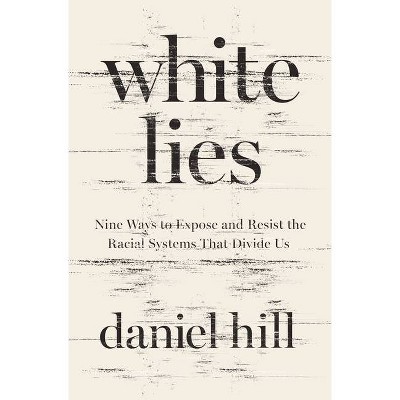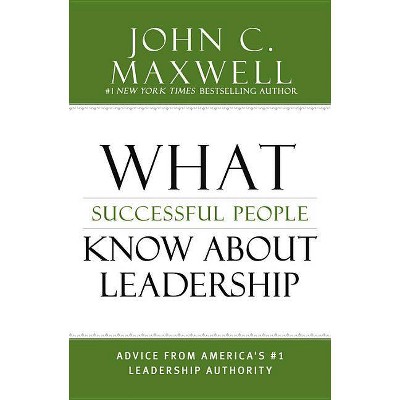What Do White Americans Owe Black People - by Jason D Hill (Hardcover)
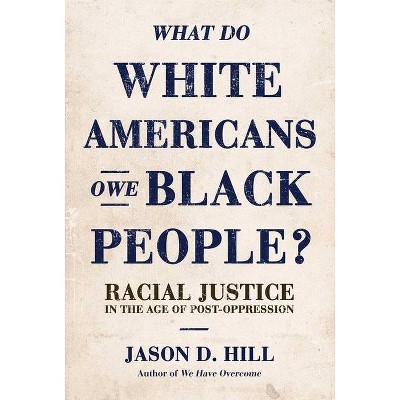
Similar Products
Products of same category from the store
AllProduct info
<p/><br></br><p><b> Book Synopsis </b></p></br></br><b>A philosopher's passionate call for all Americans to rethink our racial dynamic and to break the cycle of negativity that pits the races against each other.</b> <p/>In this provocative and highly original work, philosophy professor Jason D. Hill explores multiple dimensions of race in America today, but most importantly, a black-white divide which has grown exponentially over the past decade. <p/> Central to his thesis, Hill calls on black American leaders (and their white liberal sponsors) to escape from the cycle of blame and finger-pointing, which seeks to identify black failures with white hatred and indifference. This overblown narrative is promulgated by a phalanx of black nihilists who advocate the destruction of America and her institutions in the name of ending "whiteness." Much of the black intelligentsia consists of these false prophets, and it is their poisonous ideology which is taught, uncontradicted, to students of all races. It is <i>they</i> who are responsible for the cultural depression blacks are suffering in today's society. <p/> Ultimately, the answer to "what do White Americans owe?" is not about the morality or practicality of reparations, affirmative action, or other redistributionist schemes. Hill rejects the collectivist premise behind the argument, instead couching notions of culpability, justice, and fairness as responsibilities of individuals, not arbitrary racial or ethnic groupings.<p/><br></br><p><b> Review Quotes </b></p></br></br><br>"In his latest courageous contribution, Jason Hill rebuts the arguments that white Americans owe reparations to African Americans. Enslavement, he argues, was not a peculiar crime perpetrated by 'whites' against 'blacks' but a commonplace outcome when Europeans--and Arabs--encountered sub-Saharan societies where slave labor was the norm. In stark contrast to the tragic fate of the Africans shipped to the New World colonies, the American Founding posited a revolutionary idea of liberty for all men, though it took two more 'foundings'--Civil War and Civil Rights--to fulfill that promise for the descendants of slaves in the United States. Tragically, Hill argues, the achievement was swiftly undermined by well-intentioned but destructive welfare policies and the race-conscious ideology that produced both Black Power and Black Lives Matter. This is a bold--and at times, startling--intervention in one of the most contentious debates of our time." --Niall Ferguson, Milbank Family Senior Fellow, The Hoover Institution<br><br>"In the grand fashion of Thomas Sowell and in keeping with his previous work, <i>We Have Overcome</i>, Jason Hill starts from the philosophical premises of identitarian groupthink, details the lethal consequences if one's concern is a free society, and equips the reader with the intellectual weaponry to combat the neo-Marxists' ideology. Jason doesn't just issue the cri de coeur, 'The individual must rise.' He leads by example. Jason's life, the clarity of his thinking, and his moral courage make his work an indispensable part of any serious discussion of race, justice, and liberty in America." --Dan Proft, Radio Host, Chicago's Morning Answer (AM 560-WIND)<br><br>"Names like Ta-Nehisi Coates, Ibram X, Kendi, and Nikole Hannah-Jones have come to dominate the debate over slavery reparations and social inequality. Jason Hill's new book demonstrates why theirs should not be the final word. <i>What Do White Americans Owe Black People? </i>lays out both the philosophical and practical problems with the concept of inherited guilt. Moreover, it uses facts and logic to expose the sloppy arguments that often pass for deep thinking about race in America today." --Jason L. Riley, Wall Street Journal columnist and author of Maverick: A Biography of Thomas Sowell<br><br>"One of the boldest living thinkers, Jason D. Hill, takes a sledgehammer to everything we've been taught about race and race relations. Written with grace and clarity, <i>What Do White Americans Owe Black People? </i>offers a compelling, unifying vision that moves us beyond the current racial hysteria. It should be mandatory reading for every single American." --Dr. Peter Boghossian, Author of How to Have Impossible Conversations<br><p/><br></br><p><b> About the Author </b></p></br></br>Jason D. Hill is a professor of philosophy and Honors Distinguished Faculty at DePaul University in Chicago. He is the author of five books, including <i>We Have Overcome: An Immigrant's Letter to the American People</i>. He specializes in ethics, politics, foreign policy, and moral psychology.
Price History
Price Archive shows prices from various stores, lets you see history and find the cheapest. There is no actual sale on the website. For all support, inquiry and suggestion messagescommunication@pricearchive.us
